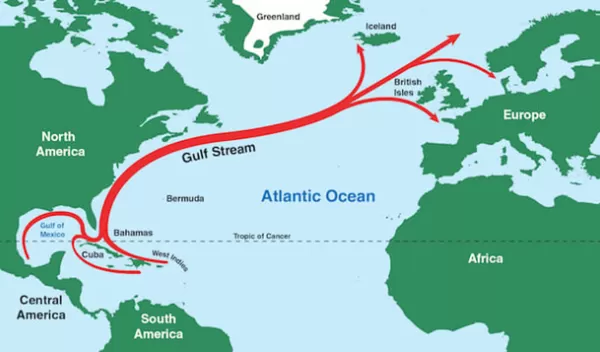
Scientists reveal links between migrating Gulf Stream and warming ocean waters
The Northwest Atlantic Shelf is one of the fastest-changing regions in the global ocean, and is experiencing marine heat waves, altered fisheries and a surge in sea level rise along the North American east coast. A U.S. National Science Foundation-funded paper published in Communications Earth & Environment by University of Rhode Island scientists reveals the causes, potential predictability and historical context for the rapid changes.
"We used satellite data to show that when the Gulf Stream migrates closer to the underwater plateau known as the Grand Banks of Newfoundland, as it did after 2008, it blocks the southwestward transport of the Labrador Current that would otherwise provide cold, fresh, oxygen-rich water to the North American shelf," said lead author Gonçalves Neto.
The mechanism explains why the most recent decade has been the hottest on record at the edge of the Northeast United States and Canada. The delivery system of cold water to the region was choked off by the presence of the Gulf Stream.
"By monitoring satellite observations near the Grand Banks, we can predict changes coming to the Northeast U.S. shelf with potentially enough lead time to inform fishery management and other decision-making," said co-author Joe Langan.
Although the 2008 shift at the edge of the Grand Banks created warmer and saltier conditions than were recorded since 1930, there was a similar shift in the 1970s relative to the decades preceding it. Thus, the circulation changes observed by satellites might have had a precedent about 50 years ago.
